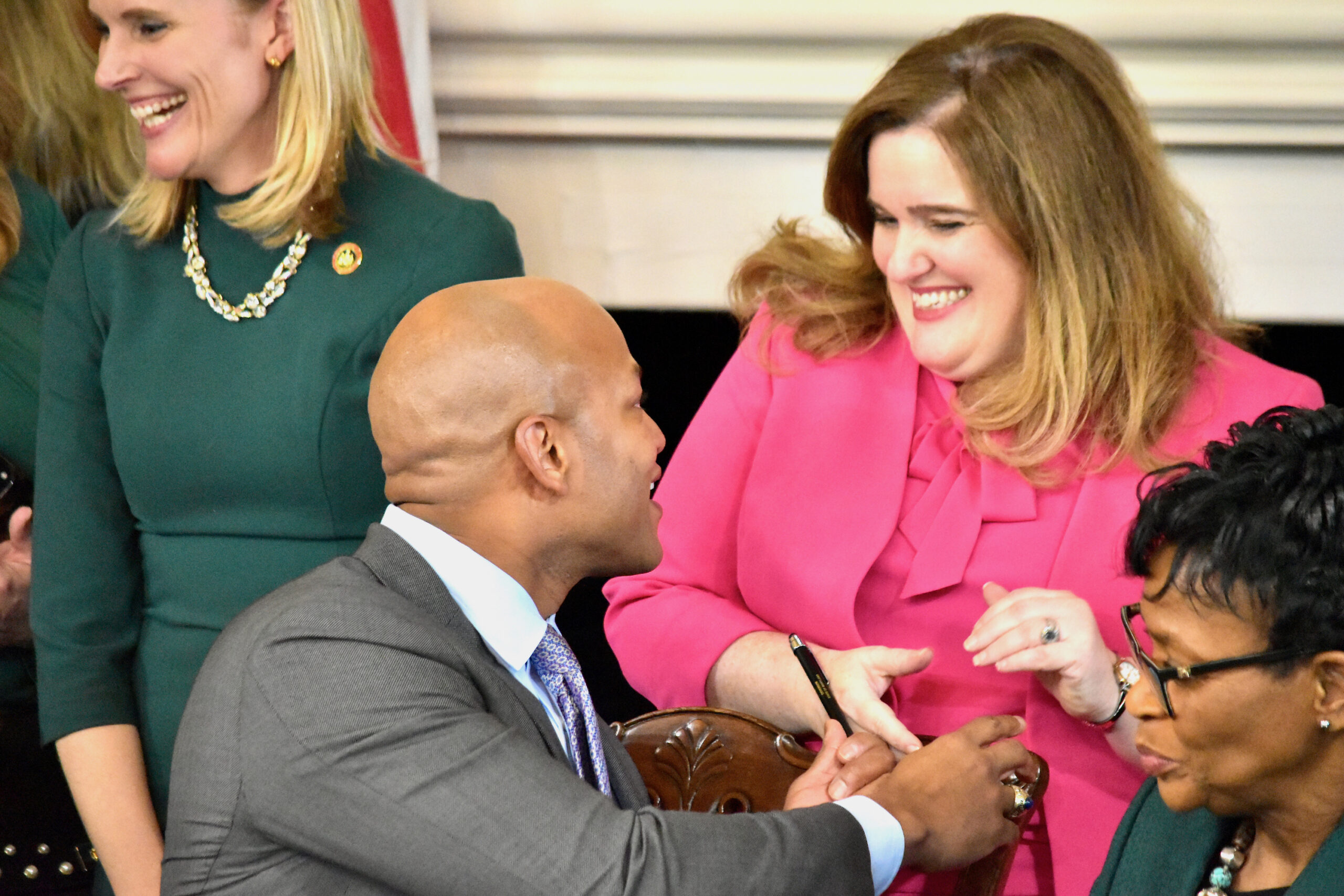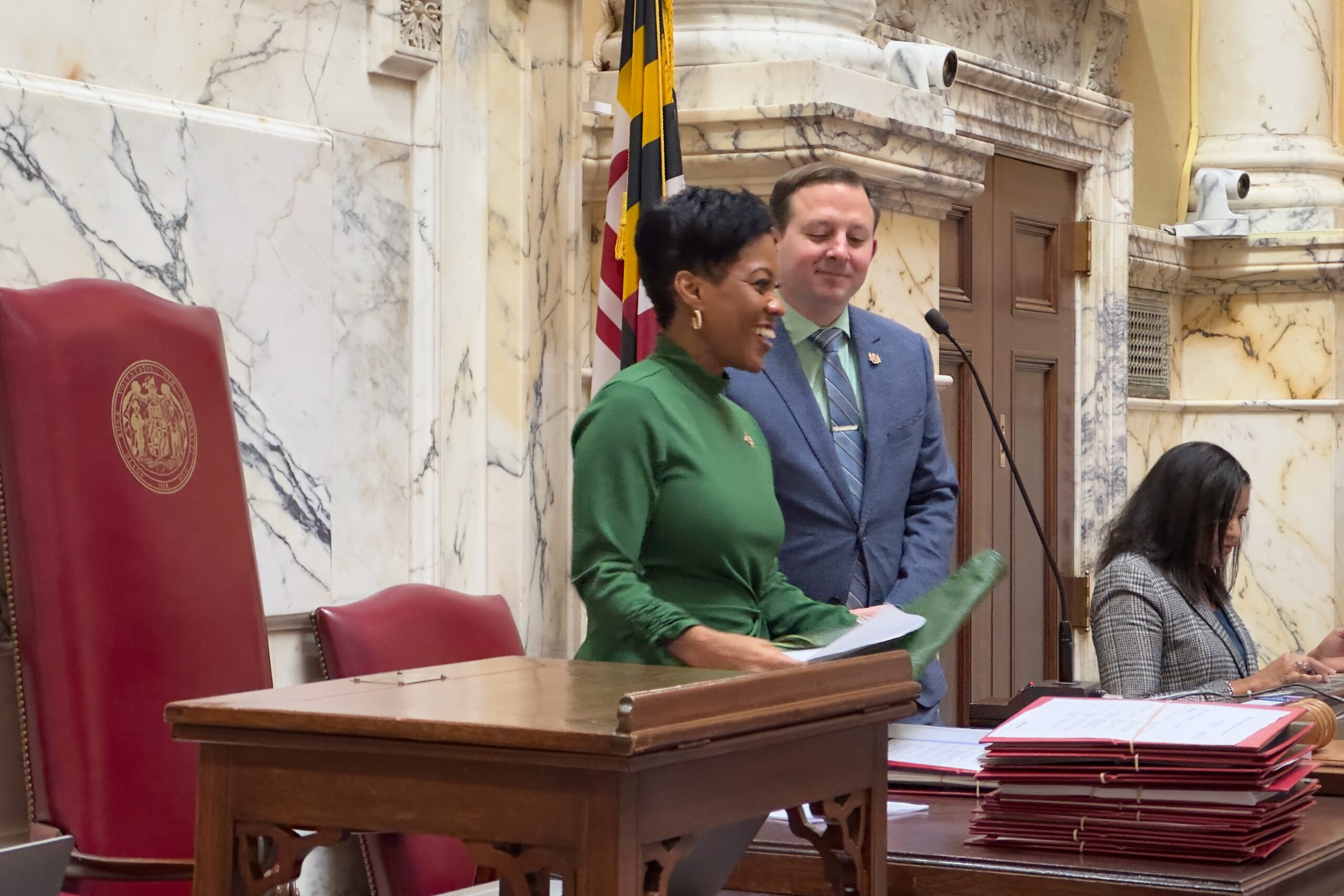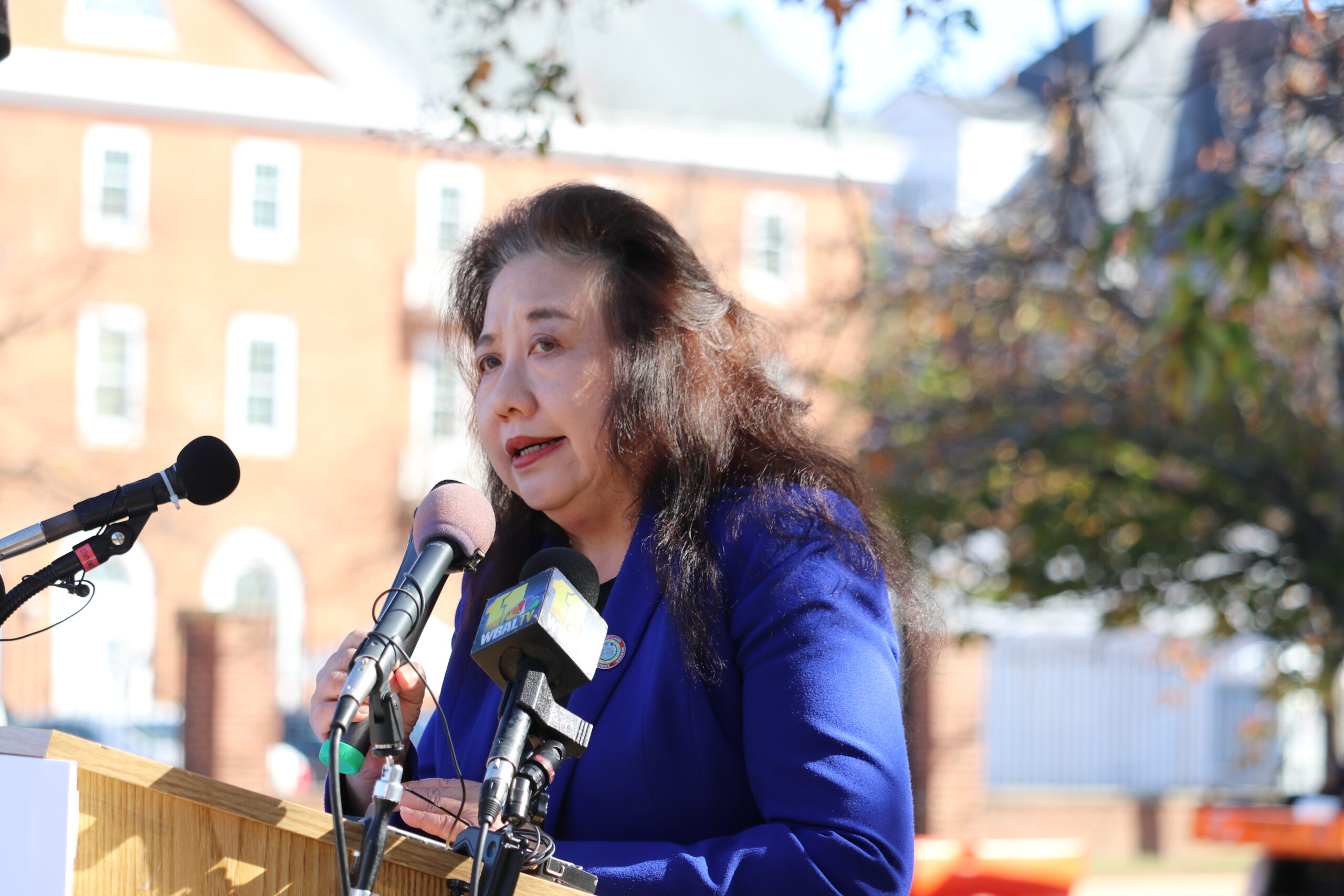Sen. Lee & Del. Carr: Here’s a Bright Idea to Save Energy. Convert Streetlights to LED Technology

By Sen. Susan Lee and Del. Al Carr
Lee, a Democrat, represents Montgomery County’s District 16 in the Maryland Senate. Carr, a Democrat, represents Montgomery County’s District 18 in the House of Delegates.
With all the talk of climate solutions, Maryland has been missing an opportunity to “see the light” and grab some “low-hanging fruit” to reach its goals.
A report issued by the Maryland Energy Administration in 2020 identified the dramatic energy savings potential of converting streetlights to energy efficient light emitting diode, or LED, technology. Besides consuming a fraction of the energy of older types of lights, LEDs require less maintenance and save taxpayers a significant amount of money.
Currently, there are more than 354,000 streetlights illuminating local roads throughout Maryland. Most of the lights are non-efficient older types. About half the lights are on metal poles and are already owned by local governments. The other half are on wood poles and are owned by utility companies such as Pepco, Delmarva Power, BGE and Potomac Edison. The utilities charge counties, cities and towns at rates approved by the Maryland Public Service Commission in published tariffs.
For the lights they already own, local governments are generally able to upgrade them to LED as the economics allow. For example, Montgomery County recently was able to upgrade the approximately 25,000 lights it owns to LED, resulting in a dramatic reduction in electricity consumption.
Due to utility foot-dragging, progress has been much slower for the utility-owned lights.
As a result, Maryland is far behind other states in enjoying the benefits of converting to modern street lighting technology. Maryland utilities have only upgraded a small fraction of the streetlights they own. For example, in Prince George’s and Montgomery counties, Pepco has converted only about 4% of the approximately 65,000 utility-owned lights to LED as of 2020.
The Maryland Energy Administration’s report concluded that a best practice to accelerate such energy-saving upgrades is to enact state legislation to facilitate local government acquisition of utility-owned lights.
Municipal acquisition of streetlights has worked well in the states that have passed such laws or taken regulatory action.
For example, hundreds of local governments in the District of Columbia, Connecticut, Maine, Massachusetts, Pennsylvania, Rhode Island and New York state have successfully acquired utility-owned lights after their legislatures or utility commissions took action. Cities and towns in those states are enjoying significant energy savings as well as reduced maintenance costs and improved safety.
The Maryland General Assembly showed leadership in 2007 by enacting a street lighting law, but in the 15 years that have gone by, no county or municipality in our state has successfully acquired utility-owned overhead streetlights. Why? The 2007 law unfortunately contained loopholes that the utilities have been able to exploit to preserve the status quo.
Maryland has an opportunity in the 2022 session to catch up to other states. We can strengthen our law by passing the County and Municipal Street Lighting Investment Act (Senate Bill 376 and House Bill 1083). Our enabling legislation enlists the Maryland Public Service commission to approve updated tariffs and resolve disputes about the acquisition process. It establishes a transparent and predictable method for valuing the lights.
House and Senate committees put Maryland’s utilities on notice when they heard similar bills during the shortened 2020 session. The House Economic Matters Committee deferred to Pepco and Delmarva, which promised to address the issue after the session with a new rate filing. In the two years that have passed, Pepco and Delmarva failed to make progress.
Their plan was rejected by the Maryland Public Service Commission after an outcry from local governments and other stakeholders because of its inflexibility. Pepco, whose parent company has been implicated in an Illinois scandal that took down a presiding officer, may have crossed ethical boundaries in pushing their flawed plan in Maryland.
SB376/HB1083 is a thoroughly-vetted bill that reflects the input from many stakeholders, including Public Service Commission staff. It is supported by dozens of Maryland counties, cities and towns and should not be a heavy lift to pass.
The House Economic Matters Committee and the Senate Finance Committee would be wise to vote favorably on the bill instead of deferring action or again falling for utility promises.




 Creative Commons Attribution
Creative Commons Attribution